- Arakan Army’s handover of 73 Bangladeshi fishermen signals potential boost in border cooperation
- Myanmar military officers accused of profiting from dismantled homes in Sittwe villages
- DMG Editorial: A Parliament Without the People Cannot Govern Arakan
- Displaced Arakanese struggle to rebuild homes leveled by junta airstrikes
- India suspends Arakan trade route for two months after death of truck driver in Paletwa
Thandwe’s weaving industry crippled by twin shocks of Covid and coup
Local weaving businesses in Arakan State’s Thandwe Township are leaving the industry due to low demand for traditional hand-woven clothes.
19 Jun 2023
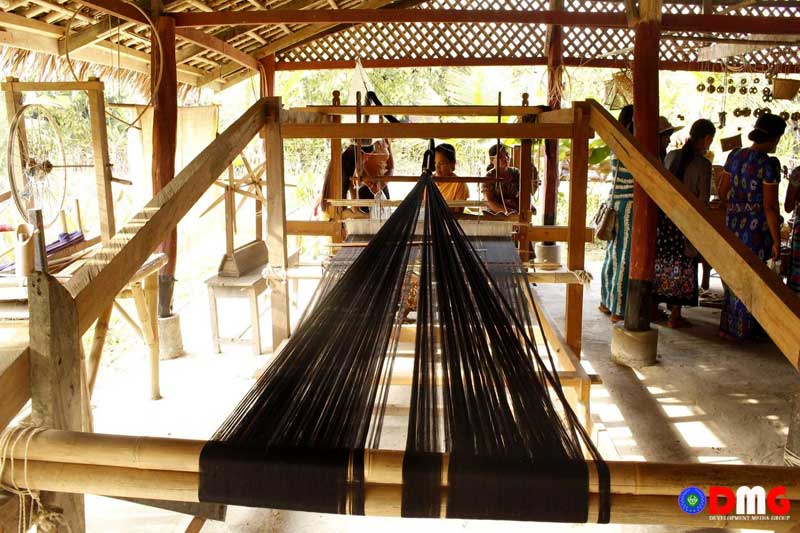
DMG Newsroom
19 June 2023, Sittwe
Local weaving businesses in Arakan State’s Thandwe Township are leaving the industry due to low demand for traditional hand-woven clothes.
The industry has been largely dependent on tourism as Thandwe is home to Myanmar’s most popular beach, Ngapali. As the beach resort destination has seen relatively few visitors following the Covid-19 pandemic and political instability triggered by Myanmar’s 2021 coup d’etat, weaving businesses have suffered.
Daw May Thwel Oo from Paya Maw Village in Thandwe Township said: “Previously, there were many looms in this village. But they are not weaving anymore. They are doing other business now.”
Her parents were in the weaving business for more than two decades, until Covid-19 forced them to suspend operations in 2020. They have been doing other business as demand has declined significantly over the past two years.
Hand-woven clothes were in high demand before the local industry suffered from the twin shocks of Covid and coup. At times, shops in Thandwe even had to place orders with weaving businesses in Sittwe as local weavers could not meet the demand. Demand has since declined by 50 to 70 percent, according to sellers.
Daw Khin Myo Chit, owner of the Miba Yeik hand-woven cloth shop in Thandwe town, said: “The demand was around 1,000 pieces of clothing per year before the Covid-19 pandemic. Since then, the demand has declined by half.”
There used to be around 100 weaving workshops across four wards and two villages in Thandwe Township. But most weaving workshops in Thandwe have suspended operations now. Only around 15 weaving workshops are operating in Thandwe town as others have suspended operations, likely at least for the duration of the rainy season.
“The demand is low as there are almost no visitors now. Only some people in Yangon buy our products to give as presents to others. So, many businesses have closed,” said Dr. Soe Myint, owner of the Shwe Wadi weaving workshop in Thandwe’s No. 1 Ward.
Sittwe and Thandwe townships engage in commercial-scale weaving, with the industry operating on a smaller scale in Mrauk-U and Ponnagyun townships.
A traditional hand-woven longyi sells for 10,000 to 50,000 kyats, and prices can be as high as 100,000 kyats for special orders.




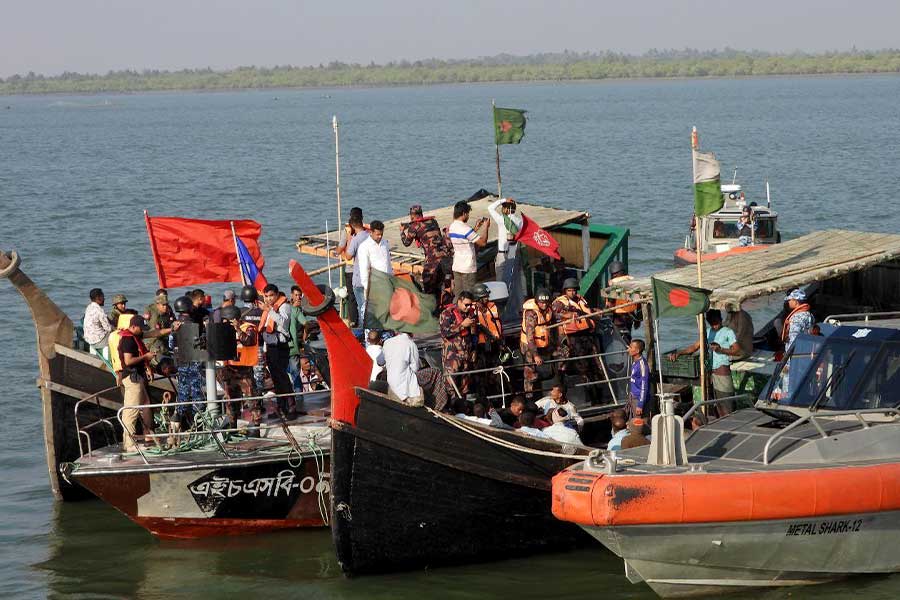
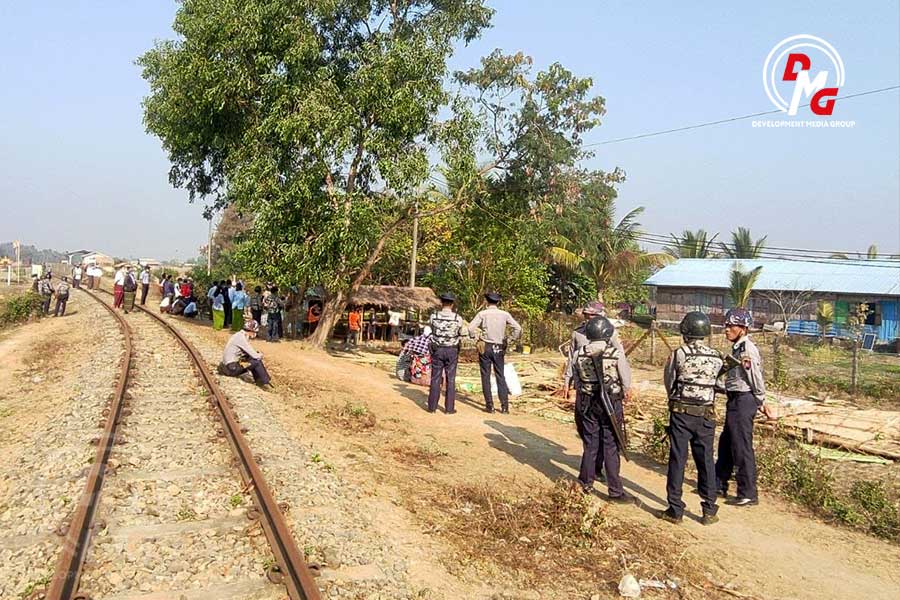
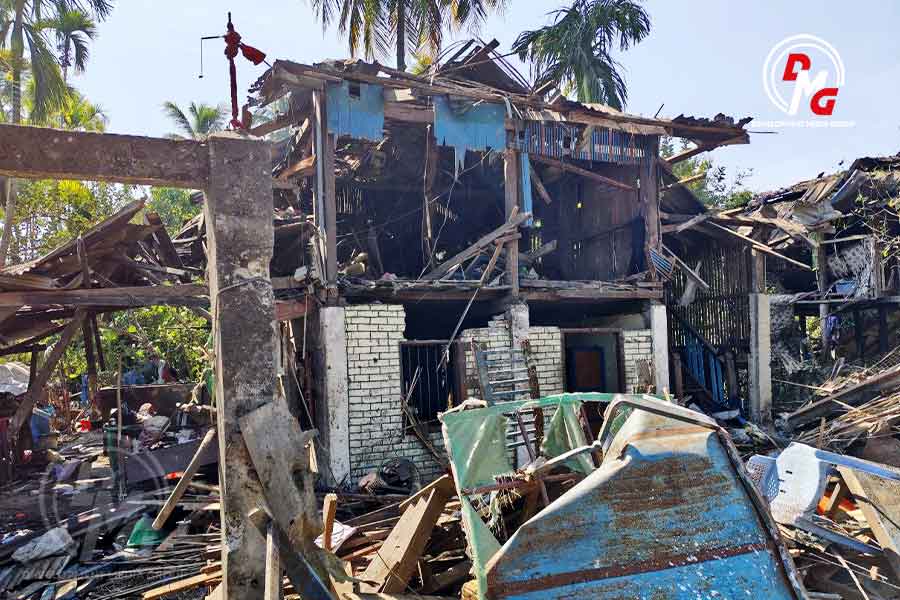
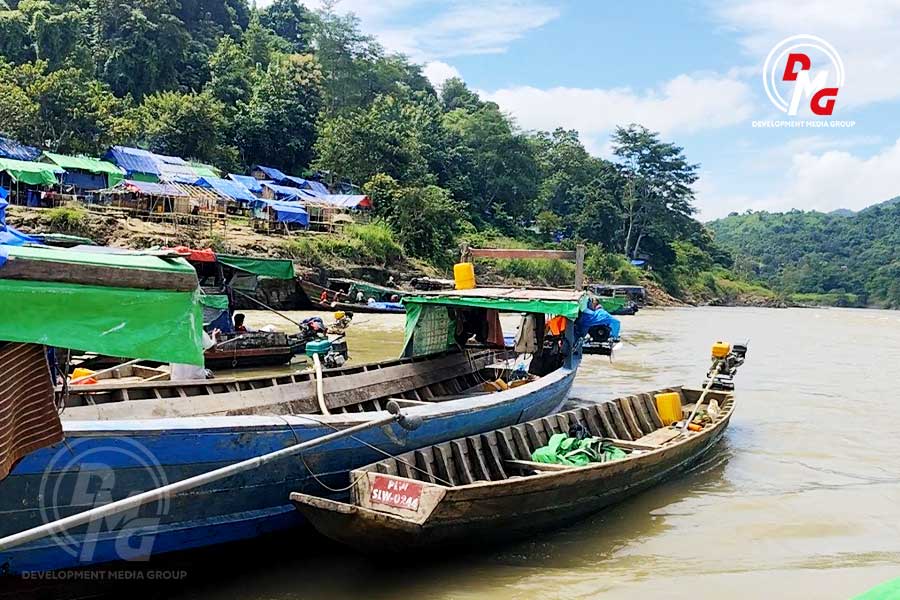








.jpg)
